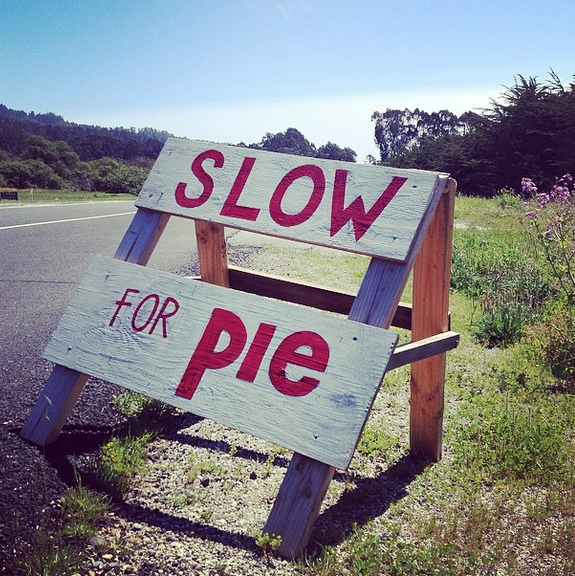

I recently read a widely citedstudyabout how our brains engage in learning differently when we work by hand.
According to their research, manually manipulating and drawing things out has a
significant impact on our creative process:
“When it comes to
learning and remembering material, the pen is mightier than the keyboard.
Writing entails using the hand and fingers to form letters. It requires more
mental energy and engages more areas of the brain than pressing keys on a
computer keyboard. The sequential finger movements activate multiple regions of
the brain associated with processing and remembering information. And learning
is enhanced when we attempt to retrieve and recreate using multiple modalities,
including kinesthetic, tactile, visual, olfactory, and auditory.”
And so, the question becomes, do we abandon our computers
completely?
Not necessarily.
On my
seventeenth birthday, my high school sweetheart bought me a custom embossed leather book cover. She
was, after all, my official muse, so it was only fitting that I had a special
book to hold all the love songs I wrote for her.
Now,
although she and I eventually drifted apart, as many first time lovers do, I
never stopped using that songbook. Almost twenty years later, even amidst the
adoption of computer technology, writing software and other digital
applications; even alongside my professional career as an author, publisher,
consultant and laptop monkey, I’ve always insisted on keeping some of my creative
process as a analog experience.
First,
for philosophical reasons:
I use the songbook for nostalgia’s sake. It feels organic
and romantic. It makes for a more intimate, interesting artifact. It allows me
to think in ways hammering at a computer never could. It helps me escapes the
speed and sanitized perfection of contemporary culture. It symbolizes a
creative process that involves slowness, attentiveness and contemplation. And
it reminds me that the more technology we have, the more people will be
interested in what the human mind can create without it.
It just
makes sense intellectually.
Second,
I use the songbook for practical
reasons:
Frankly,
I just love the sound of a pen scratching paper. The gentle noises of the pages
turning. The experience of stumbling into verbal accidents. The
excitement of seeing my words stringing together on a page. The frustration of crossing
out lyrics that don’t make the final cut. The varying shades of ink as I apply more
pen pressure because of the uncontrollable passion and excitement for certain
words and phrases. And of course, the satisfaction of circling the title of a
newly finished tune.
It just makes sense physically.
Plus, you never know. One man’s scribble can become another
man’s heirloom.
Detour is a
traveling art exhibit that featured notebook creations by internationally
recognized artists, architects, film directors, graphic designers,
illustrators, and writers. Some works contained extensive stories, while others
were converted into pieces of contemporary art and design. But once the exhibit
was finished touring, all of the notebooks were published in a beautiful coffee
table book.
I own a copy, and as a physical archive, I must say, having that
whole collection of three hundred handwritten notebooks makes the me feel like I’m
peeking into the brains of modern culture’s brightest creators. My favorite
section is the essay is on the subject of notebooking, written by Lorin H.
Stein, the editor of The Paris Review:
“The computer has
given us permanent cold feet. No sooner do we try one thought, one rhythm or
one piece on for size, we write by deletion and insertion and insertion and
deletion, until at the end of a long day, we end up facing an empty screen. The
notebook, by contrast, demands commitment. You write and there’s no turning
back. You may immediately scratch it out, but the page has been breached. There
are footprints in the snow.”
It’s a powerful case for the analog world.
And yet, it’s not a panacea.
The
goal isn’t to compartmentalize our creative process into equal parts analog and
digital. Life isn’t always that cut and dry. Not everyone has the square
footage to maintain two different workstations. And trying to enforce a perfect
balance of the two might do more harm than good.
Instead,
we ought to take a closer look at our creative workflow and ask ourselves, are there any activities that might be
better served without the aid of a digital hand? Is there anything work would
benefit from a more human, organic approach? Because along the way, we may
discover some corner of how we express ourselves, small as it may be, that’s
begging to unplug and help us get back in touch with our bodies.
I’m
reminded of one of my favorite reads on this topic, Shop Class As Soulcraft. This book legitimately changed the way I
work. It renewed my cultivation for manual competence. According to the
author, we experience a greater
sense of agency, competence and cognitive richness when we do manual work. That
we must reckon with
the infallible judgment of reality, where our failures or shortcomings cannot
be interpreted away. That creating in a more physical way helps us tolerate the
layers of electronic bullshit that get piled on top of machines.
The
point is, we owe it to ourselves and work to keep some of our workflow free from the constraints of digital. To stay
current with our technological reality, but also to stay true to our analog
humanity. And ultimately, this key decision will help tighten up our creative systems
and release new levels of output and expression.
